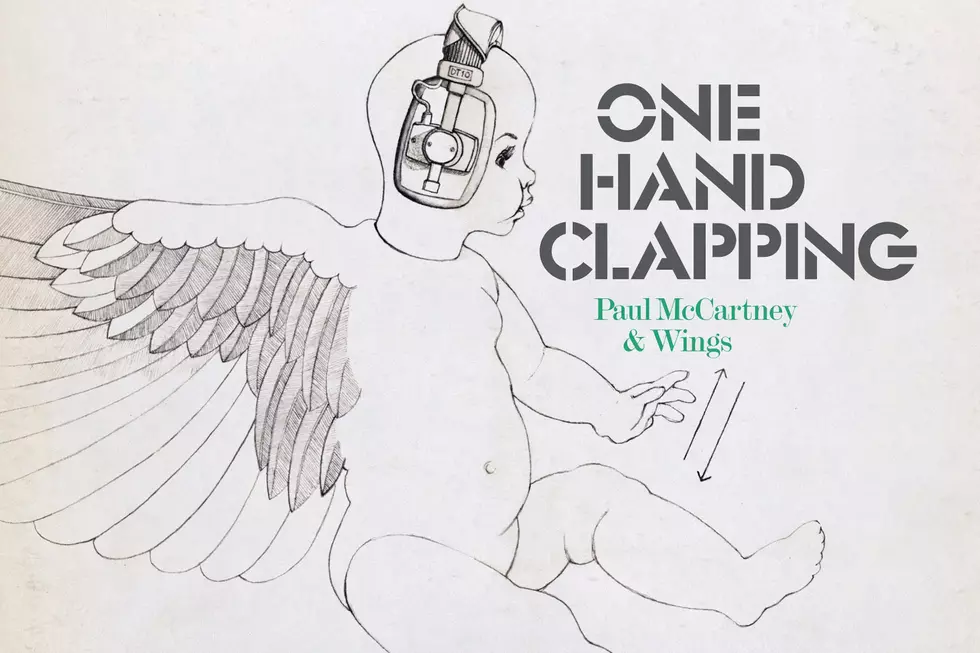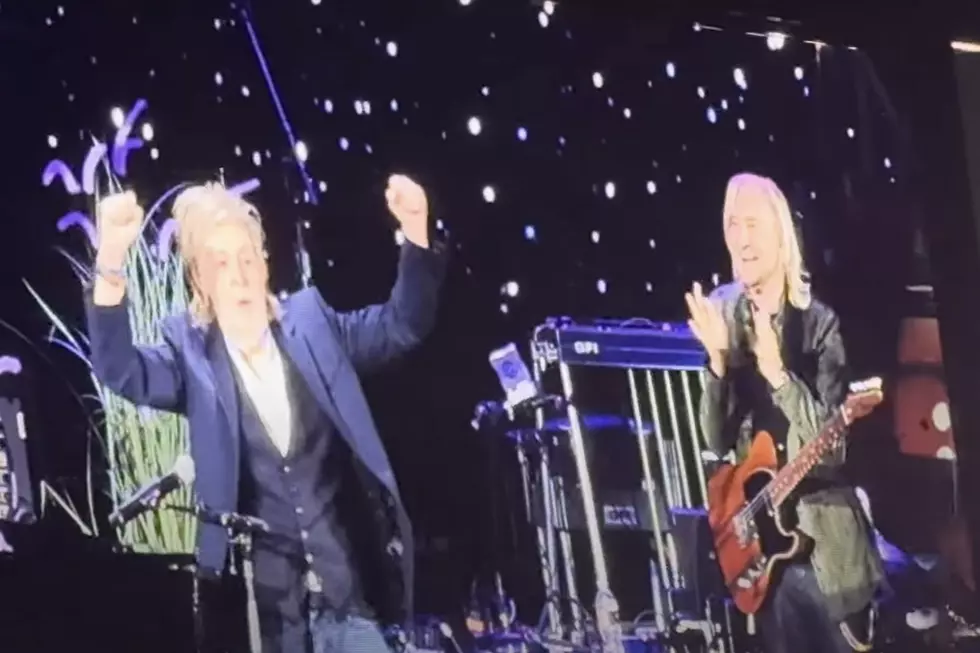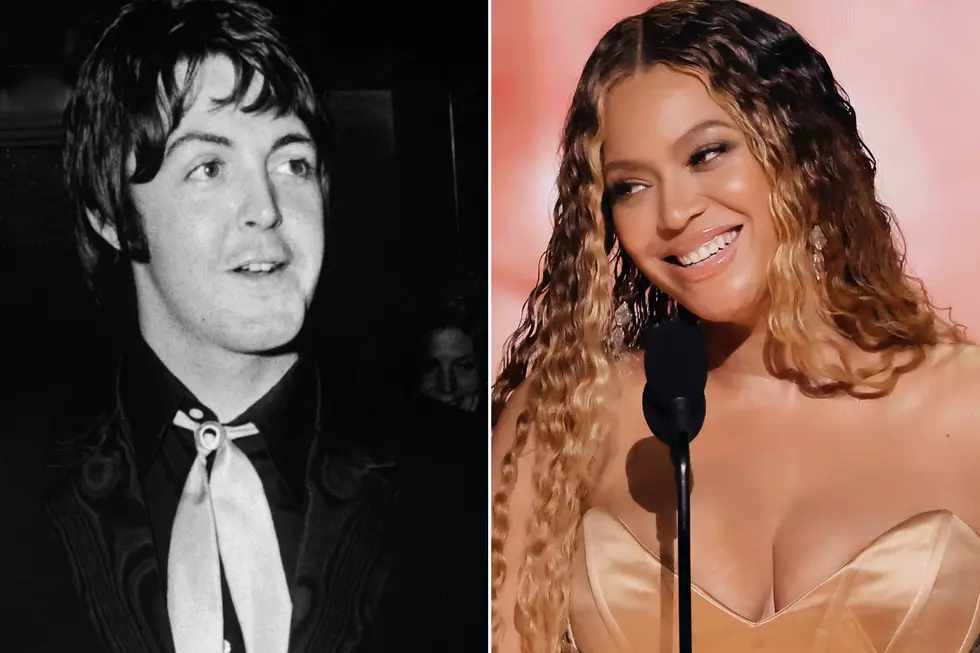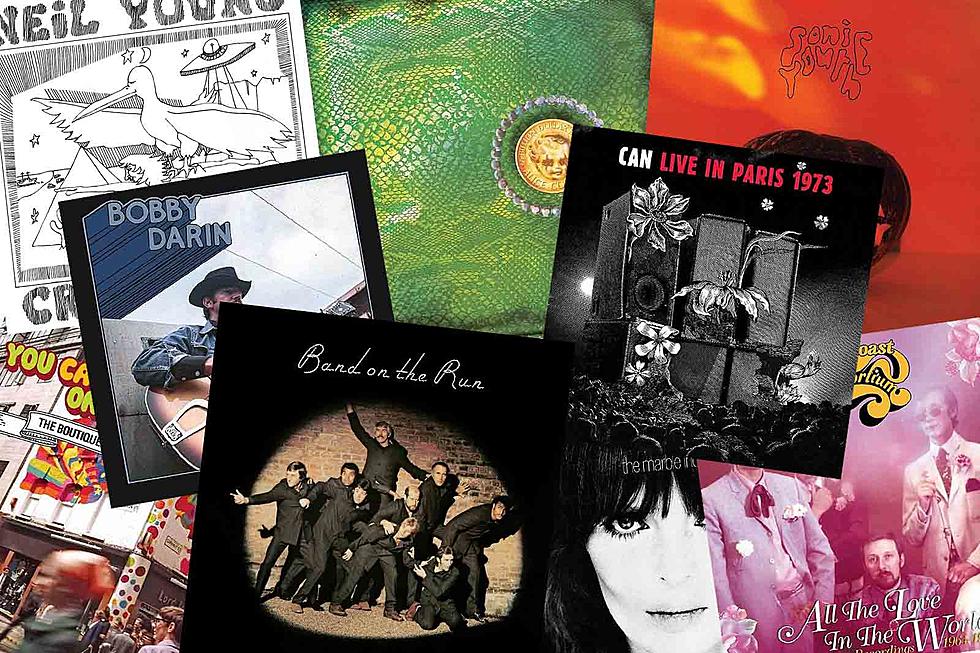
How Paul McCartney Returned to Form, Again, on ‘Flaming Pie’
Paul McCartney is the kind of artist who's been around long enough to have several "returns to form" over the years.
Yet even among his many returns to whatever forms people believe he should ultimately occupy, Flaming Pie (which was released on May 5, 1997) stands out as vintage Beatles-esque McCartney, searching and satisfying at the same time.
Following the production of the Beatles' Anthology project, McCartney entered the studio with ELO's Jeff Lynne and aimed for a simple, pure pop rock record, devoid of overproduction and studio trickery. With Lynne and Beatles producer George Martin behind the boards, it's debatable whether anything could ever be "simple and pure," but the record does stick to a basic guitar/bass/drums template.
Even when the songs occasionally veer into a bit of excess – like the lush Martin string arrangement on "Somedays" – there's precious little knob-twirling or multi-tracked vocals on Flaming Pie, which stands out as an accomplished and polished set of songs in which McCartney, in one of many introspective moments throughout his solo career, offers a snapshot of a man liberated and captured by his legend.
Listen to Paul McCartney Perform 'The World Tonight'
That's the line McCartney dances along on his best solo outings: He alternates between the kind of schmaltzy (but satisfying) pop that earned him that rep as a Beatle and strange (but satisfying) forays into mild experimentation and alternative genres. And somehow, after all these decades, he makes a case that he was the most adventurous Beatle and not John Lennon.
So the record opens with a nostalgia trip in "The Song We Were Singing," ostensibly about McCartney's relationship with Lennon but also a pretty, aching and shameless love letter to anyone who ever spent any part of the '60s or early '70s bumming cigarettes and talking about old Chuck Berry records. It then stumbles immediately into the cracking single "The World Tonight," which features a sinister guitar riff and lyrics that suggest dark intrigue gurgling beneath the surface of its effortless pop sheen: "I heard you listening to a secret conversation / You were crying / You were trying not to let them hear you."
There's piano-driven pop with surrealist lyrics (the title track), sinewy guitar-led blues ("Used to Be Bad") and some schmaltz ("Beautiful Night"). In other words, it's got everything McCartney has to give, and that adds up to a total exponentially greater than the sum of its parts.
Beatles Solo Albums Ranked
You Think You Know the Beatles?
More From Ultimate Classic Rock









